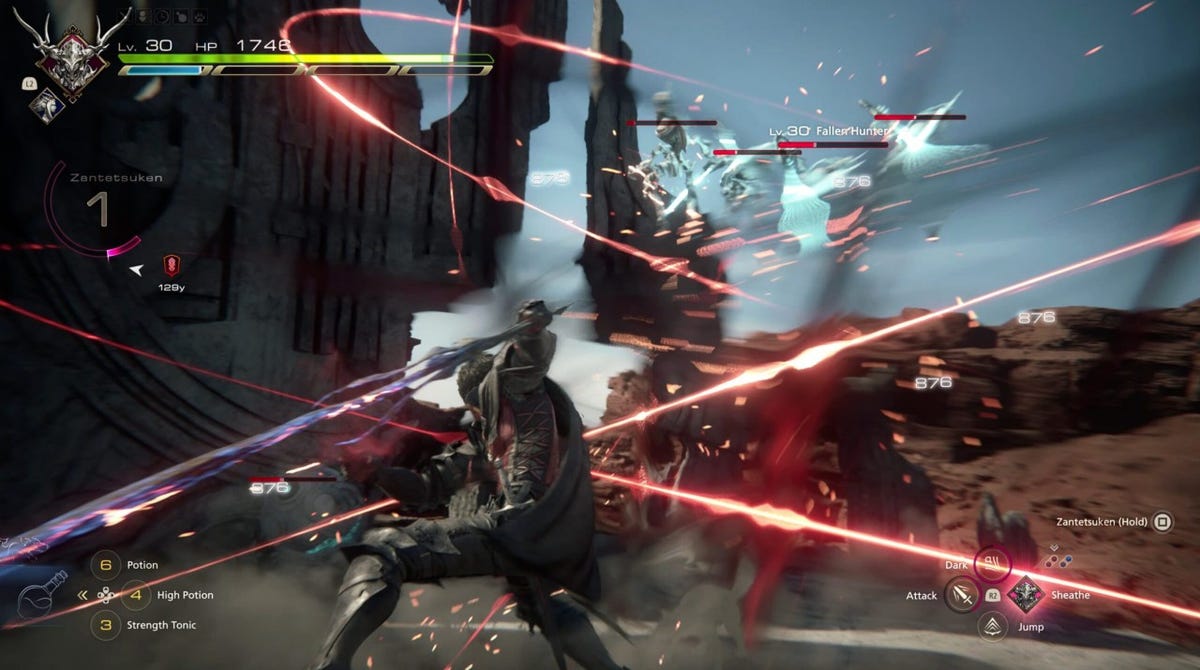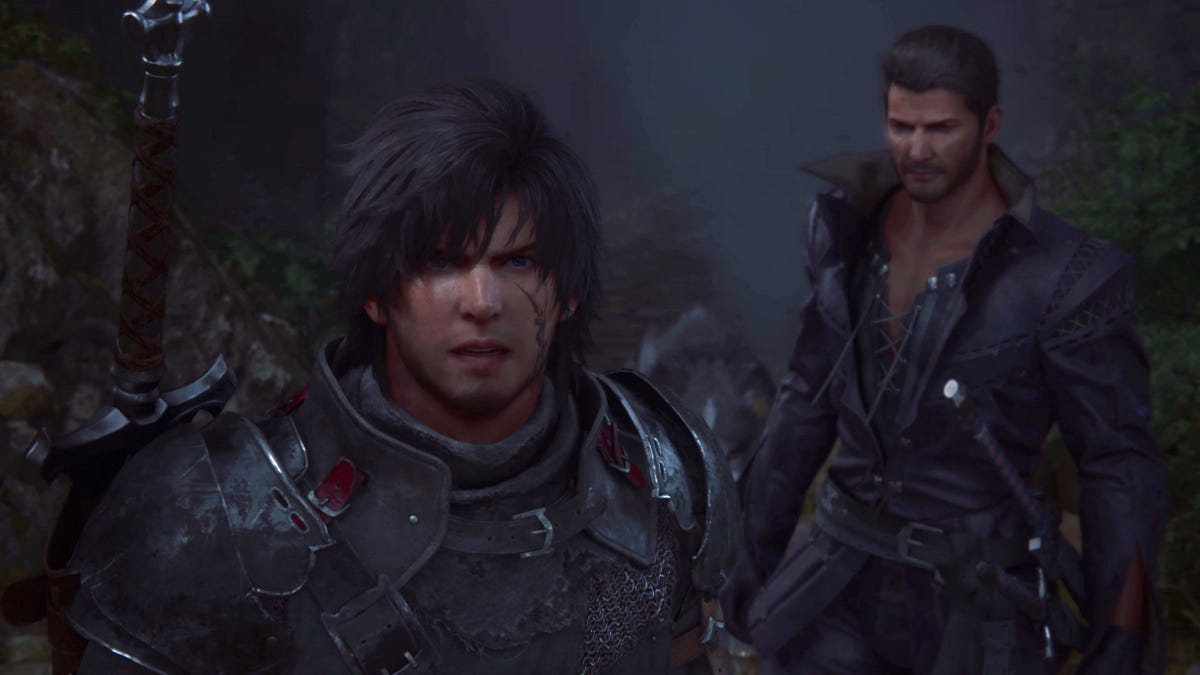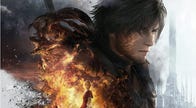Not since Final Fantasy X all the way back in 2001 has Square Enix made a new Final Fantasy as ambitious as Final Fantasy XVI. As the PS5-exclusive game’s grand-yet-focused story unfurls over 50 hours, players will experience a reimagining of Final Fantasy’s RPG roots. Not all of Square Enix’s lofty ambitions are realized, however, resulting in a game that, while exhilarating, won’t thrill you quite like previous Final Fantasy games have.
There is certainly a lot to love about Final Fantasy XVI — but you’ll need some patience to see it.
Square Enix generated buzz earlier this month releasing a demo consisting of Final Fantasy XVI’s opening two hours. Feedback has been overwhelmingly positive. The game does indeed start with a bang: You’re witness to a dazzling clash between two Eikons, powerful superbeings known in previous Final Fantasy games as Summons, and your toe is gently dipped into the ocean of lore that Square Enix crafted for the world of Valisthea.
You’re also introduced to main character Clive, playing through a crucial childhood experience that involves Clive transforming into an Eikon and ends with tragedy befalling his brother Joshua.
Yet these spectacles obscure one of Final Fantasy XVI’s central flaws. From a combat and gameplay perspective, the first 15-20 hours are slow going. Clive eventually amasses a varied repertoire of abilities, but the majority of these are learned through story events that happen in the second half of the game. You’ll spend a lot of the first half mashing the square button to perform generic combos.
If you want true power, you gotta earn it.

Final Fantasy XVI’s combat is beautiful to look at, but isn’t particularly deep.
The level and world design doesn’t help. Final Fantasy XVI is a linear game. Not every game needs an open world, but Final Fantasy XVI feels restrictive. This is especially true in the first chunk, in which levels are thinly disguised corridors. Clive finds himself in a battle area where he dispatches low-level foes, runs through a narrow hall or jungle path to the next battle area where there’s a boss-esque enemy. Wash, rinse and repeat.
It’s not bad. But it’s not terribly exciting, either. The story carries a lot of Final Fantasy XVI’s weight during these opening hours, with Square Enix hoping the narrative power will help propel you along. And to its credit, Square Enix largely succeeds at creating a compelling universe — if you have tolerance for high fantasy with a dash of anime melodrama.
Final Fantasy XVI does an admirable job of keeping the narrative tight. The game starts with Clive searching for answers about his brother and, like all fantasy epics, ends with the entire world at risk. One of Final Fantasy XVI’s biggest strengths is how it escalates gradually, with each quest bridging to another with slightly higher stakes, such that you can slowly imbibe the lore of Valisthea as the scope of Clive’s story expands.
Though there’s a lot going on in Valisthea — nations at war, land destroyed by mysterious blight — Clive’s quest motivations are always clear. That helps the story to always feel focused in spite of its frenetic grandeur.
The cost is that this is a cutscene-heavy game. Plus many quests, even late in the game, can be drab affairs: Transport to this location, talk to three villagers and then, because you’re there, fight some generic bad guys. These down moments are usually done to establish a piece of the narrative puzzle, helping to keep the story cohesive until it all connects together, but they do slow momentum.
And there are a lot of pieces to this puzzle. Final Fantasy XVI features something called «Active Time Lore,» which, if you hold down the center button, brings up journal entries on the relevant on-screen happenings. If Clive is talking to his brother Joshua in their family castle, for instance, ATL will throw up reports on who Clive is, who Joshua is, and one on their home nation of Rosaria. It’s the digital equivalent of an encyclopedia on your lap — one you’re likely going to need to refer to again and again.

Clive with Cid, the game’s best character.
Part of why ATL is necessary isn’t because the story is complicated per se, but there are just so many moving parts. There are countries, magic crystals and characters to remember, plus the relationships that bind them all together. It doesn’t help that characters, instead of referring to Valisthea’s six nations by their distinguishing names like «The Empire of Sanbreque» and «The Dhalmekian Republic,» use more interchangeable terms like «the empire,» «the republic» and «the kingdom.»
If you want to understand Valisthea, you gotta work for it.
The story is a win, but with an asterisk. As the need to regularly familiarize yourself with lore suggests, you’ll be turned off if you don’t have a taste for high fantasy. And since the story is the foundation of Final Fantasy XVI, an allergy to the genre is reason enough to stay away. That’s because Final Fantasy XVI the game is good, but not extraordinary.
World and level design are the biggest issues. Though the visuals are beautiful, environments often feel more lifeless than they should. Invisible walls are everywhere, in the form of logs Clive can’t jump over or doors he can’t smash through. Quests instruct you to find a person or item, but lead you directly to them in a way that makes everything feel small. Crates and tables don’t break when you swing at them as they do in other action games, making the world feel dead and static. At a time when Nintendo is making magic over in Hyrule, the absence of a sense of exploration in Final Fantasy XVI is conspicuous.
Then there’s the combat. It’s fun to look at, and many of the boss battles are outstanding. But the hack-and-slash combat system lacks depth or any strong incentive for creativity. You can mostly get by with basic combos and a decent evade skill. Abilities help you cut through enemies faster, but you don’t need to use them tactically to win. Really, there aren’t many tactics to employ. Though you’ll learn different flavors of magic, there’s none of the elemental strategy of games in the franchise’s past. Doing an ice attack on a fire-powered creature, for instance, yields no extra damage.
It’s one of the many ways Final Fantasy XVI has been de-Final Fantasied. Also gone is the party system of yonder. Instead of controlling different members of a party, each with their own specialized skills, you’ll have a changing cast of characters accompany you on missions, a la Disney luminaries in Kingdom Hearts. And instead of the idiosyncratic progression systems the franchise is known for — the Sphere Grid in X, the License Board in XII, the Materia system in VII — Final Fantasy XVI features a more generic skill tree.
But there’s a lot of Final Fantasy here to charm fans. I mean that literally. This is a big game, with lots to do. The main campaign will take you between 40 and 60 hours, and there are plenty of side quests to expand that playtime. Post-game content is promising, especially with a bounty board that allows you to hunt increasingly tough enemies that are satisfying to topple.
The changes Square Enix made to Final Fantasy XVI have sparked debate about what precisely it is that makes a Final Fantasy game. But apart from any specific gameplay system, Final Fantasy made its name by being on the cutting edge of roleplaying games. Final Fantasy XVI is good — but it’s not that. It’s a solid action game with a memorable story.
Nothing more, nothing less.
When does Final Fantasy XVI come out?
Final Fantasy XVI comes out on Thursday, June 22, and will cost $70 ( 70, AU$115) for the standard edition and $100 for the deluxe edition.
Sony will also release a Final Fantasy XVI PS5 bundle on June 22 for $560. The bundle comes with a standard PS5 console with DualSense Wireless Controller and a Final Fantasy XVI game voucher.
What platforms will get Final Fantasy XVI?
Final Fantasy XVI is a PlayStation 5 timed exclusive. Naoki Yoshida, Final Fantasy XVI’s producer, told ASCII last month that there are plans for a PC version of the game.
Will there be any DLC for Final Fantasy XVI?
Yoshida told Game Informer last month that there are currently no plans for downloadable content for the game.
Is there a Final Fantasy XVI demo?
Yes, it’s currently available for download in the PSN Store.
What’s the story of Final Fantasy XVI?
Final Fantasy XVI takes place in the world of Valisthea, where nations battle each other over magical Mothercrystals, which provide magic energy to the people of the nation. A powerful force in the nations are magical creatures called Eikons who are controlled by human hosts called Dominants.
Players control Clive, the son of the Archduke and First Shield of Rosaria. His role is to protect his younger brother Joshua, who is the Dominant of Phoenix. The game explores the turmoil Clive goes through following an attack on his home nation.
What’s different in this Final Fantasy?
Each mainline Final Fantasy game is unique in its own way, and Final Fantasy XVI makes some big changes to the series formula by making the combat more of an action RPG rather than a turn-based party game. This means players will only control Clive, who uses both physical and magic attacks to take down enemies. Other characters will join Clive in the fight, but they’ll act on their own. The exception to this is Torgal, Clive’s four-legged companion, who can attack and heal via quick commands.
Another big change in Final Fantasy XVI is the mature rating. The US Entertainment Software Rating Board rated the game M due to its depictions of violence, partial nudity, blood and strong language, which is the first time a game in the series received this adult rating.
The adult themes and medieval setting led to comparisons to HBO series Game of Thrones, which members of the development team confirmed they were fans of and noted some similarities.



